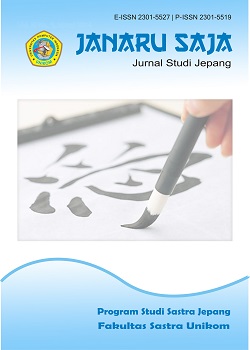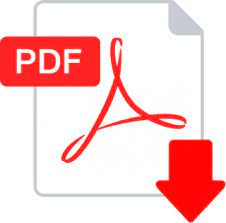Penilaian terhadap Fungsi Aplikasi Kansaimo sebagai Media Pembelajaran Dialek Kansai Berbasis Android
DOI:
https://doi.org/10.34010/js.v7i2.2420Abstract
Abstrak
Penelitian ini membahas penilaian dari responden tentang fungsi aplikasi tersebut. Metode yang digunakan adalah metode pengembangan ADDIE dan data dikumpulkan dari kuesioner yang diberikan kepada dua puluh enam mahasiswa Sastra Jepang yang aktif dalam perkuliahan di tingkat tiga Fakultas Sastra Universitas Komputer Indonesia. Instrumen penelitian menggunakan kuesioner dan untuk pengumpulan data menggunakan skala likert. Hasil penelitian menunjukkan bahwa responden sangat setuju dengan aplikasi pembelajaran Dialek Kansaimo Kansai sebagai media pembelajaran untuk fitur-fiturnya yang menarik, konten yang mudah dipahami, dan pengoperasian yang mudah. Aplikasi ini masih belum sempurna dan perlu pengembangan lebih lanjut.
Kata kunci : Multimedia, Kansaimo, Media Pembelajaran, Kansai
Abstract
This paper discusses the valuation from the respondents about function of the application. The method used is the ADDIE development method and the data is collected from questioners given to twenty six Japanese Literature students who were active in lecture at third level Faculty of Letters of Universitas Komputer Indonesia. The research instrument using questionnaire and to collection data using likert scale. The result has shown that the respondents strongly agree the application of Kansaimo Kansai Dialect Learning as a media of learning for its interesting features, easy to understand content, and easy operation. This application is still imperfect and needs further development.
Keywords: Multimedia, Kansaimo, Learning Media, Kansai
Downloads
Published
Issue
Section
License
- Authors retain copyright and grant the journal right of first publication with the work simultaneously licensed under a Creative Commons Attribution License that allows others to share the work with an acknowledgement of the work's authorship and initial publication in this journal.
- Authors are able to enter into separate, additional contractual arrangements for the non-exclusive distribution of the journal's published version of the work (e.g., post it to an institutional repository or publish it in a book), with an acknowledgement of its initial publication in this journal.
- Authors are permitted and encouraged to post their work online (e.g., in institutional repositories or on their website) prior to and during the submission process, as it can lead to productive exchanges, as well as earlier and greater citation of published work (See The Effect of Open Access)











.jpg)

